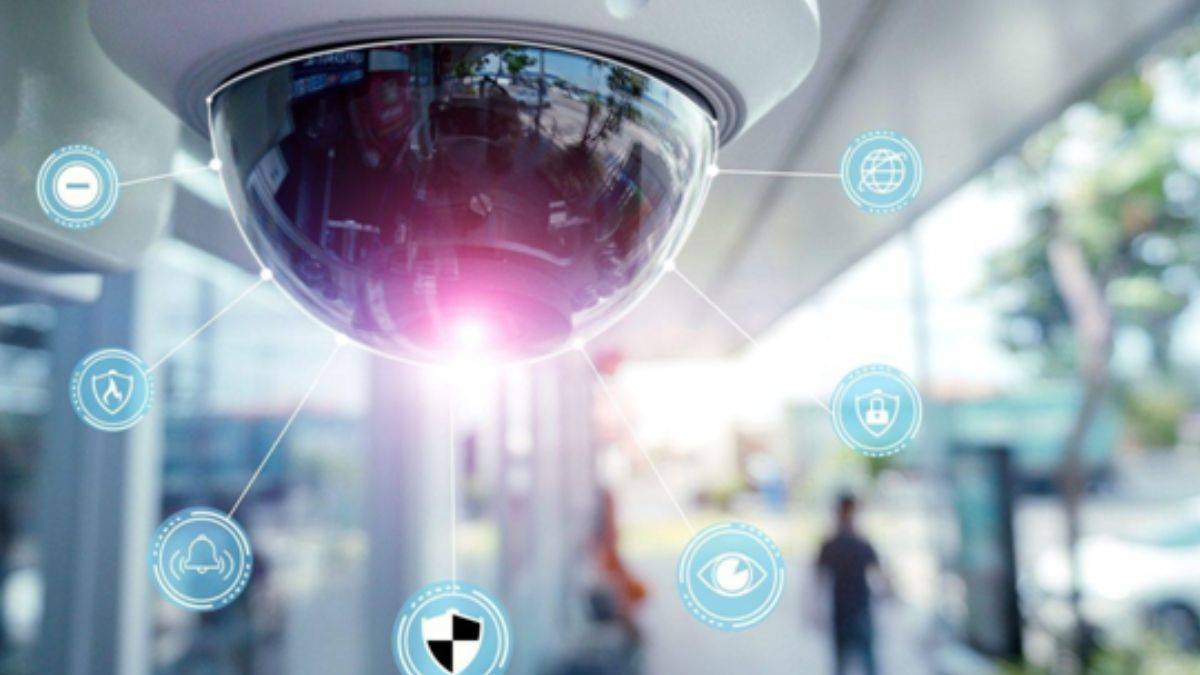Wow, what a trend digital marketing has been in this 21st century. The internet has introduced a modern market where people shop for goods and services right from their homes’ comfort through multiple devices.
So, it’s not surprising that forward-thinking establishments are focused on utilizing the opportunity through digital marketing wheels. By employing several strategies, campaigns, and tools, businesses push themselves out there to promote their products and services to all categories of people.
They use several websites and multiple social networking platforms to reach millions of people all over the world. But there’s one crucial aspect that many of these businesses ignore regarding digitalization: web security.
It makes no sense to invest your time, effort, and money to grow your brand online but lose it all due to a preventable cyberattack. The truth is that as digitalization is gradually becoming the new normal, cyber fraudsters are also sharpening their knives and improving their skills to cause damages.
No matter how focused your team is on improving digital marketing efforts, don’t forget to put protective measures in place against cybercriminals’ activities. Remember, one single attack that compromises your efforts will lead to loss of funds, reputational damages, loss of brand patronage, and financial fraud against your customers.
So, in this article, we will enumerate the importance of web security in digital marketing. We will also discuss some deadly methods of cyberattacks and security measures to fight them off.
Importance of web security in digital marketing
Why must you pay attention to internet security in your digital marketing efforts?
1. To protect your company
If you want to ensure your business’s growth and success, you must protect it from attacks. The truth is that digital marketing is a surefire way to attain unprecedented growth, but it exposes your business to cyber criminals too.
So, no matter what you do, invest in robust security measures to mitigate whatsoever attack that may target your business online.
2. To protect the privacy of your customers
Without customers, a business is as good as over. If customers use your platforms and face security breaches, you can say goodbye to their patronage. So no matter what you do, make sure to protect their data, personal information, payment details, etc. That way, you can enjoy their continuous patronage and even recommendations.
3. To achieve credibility
No customer will willingly expose themselves to hacks and cyberattacks. That’s why many people will never expose their private details on unsecured websites or platforms. So, if you want your customers to trust your company, invest in strong security tools.
4. To avoid the cost of damage control
Do you know that you can spend more on damage control than security? Why wait for a cyberattack to happen before you can wake up to the importance of web security?
It is better to spend little on meeting strong web security standards than spending millions trying to cushion the effects of a cyberattack. So, expand your budget and prioritize web security now to keep your business from going under.
5. To protect your branding efforts online
It’s usually hard to win the trust of customers if your company account has been hacked. Many people will never be confident in your brand again because they’ll feel that you’re not serious. So, if you don’t want your marketing efforts to go down the drain, keep your security standards high to remain legit online.
6. To have a competitive edge
Every industry is saturated with many players vying for attention, recognition, and acceptance. If you want to stand out from the desperate crowd of entrepreneurs, you must win the heart of your customers and retain them.
The only way to do this is to prove that you’re legitimate and credible by protecting your brand image and customer’s privacy. That way, you’ll be the go-to brand for everyone who needs the services or products you offer. But if you’re careless and allow cybercriminals to undermine your efforts, you’ll become one of the desperados in your industry who can’t find the tiniest market share to hold.
Forms of Cyberattacks and How to Prevent Them
Malware Attacks
This type of attack occurs when hackers infiltrate someone’s devices to compromise their privacy. These miscreants install malicious software that’ll steal personal information from the victim for fraudulent activities through such unauthorized access. Sometimes, the malicious software ends up damaging the host device, depending on the intent.
Some of the malware types utilized in this form of attack include spyware, Trojan horses, viruses, and keylogger spyware. The frightening aspect is that these malware attacks can infiltrate all operating systems and devices. Even if your company uses macOS, iOS, Microsoft Windows, or Android, cybercriminals can still install their malicious software successfully.
How will the malware attack affect your company?
- Cybercriminals can install spyware on your computer to steal data, passwords, emails, etc., for their fraudulent activities.
- They can use viruses to corrupt your company data and important system files throughout the whole network.
- Cybercriminals can use ransomware to hijack your files and demand huge sums of money before releasing the resources to you.
- They can compromise your server with malicious software and infect all your customer’s computers. Once these customers discover that they became victims of cyberattacks through your service, that might be the end of their patronage.
- Cybercriminals can steal the personal information of your customers to commit identity theft.
How do you prevent malware attacks?
- Install the best anti-malware and get a strong firewall to protect your systems.
- Update the software regularly to remove or fix computer bugs
- Don’t open any email attachments without confirming the source.
- Install an anti-virus extension to protect you from malicious sites
- Always back up important files to protect your company in case of attack.
- Don’t run executable files without scanning them properly.
- Use safe payment methods on your platforms, such as PayPal.
- Implement SSL technology to encrypt the data you share with your customers.
Attacks on Social Media
Digital marketing without social media is like driving a tireless car. The numerous social media platforms help a business to increase its brand visibility and awareness. They can reach a larger audience, secure millions of leads, and successfully convert many to loyal customers.
Cybercriminals know the importance of trust on these platforms and know many people who use these platforms. So, they usually target the social media accounts of many reputable businesses to compromise their followers. They can hijack your company accounts to gain unrestricted access to your customers.
How will a cyberattack on social media affect your company?
- Cybercriminals can change company profile details and spread falsehoods to your customers.
- They can pose as your company rep to send spam emails to your customers or even send malicious links to compromise their personal information.
- A brandjacking on social media can damage your brand reputation because the criminals will spread harmful content to your clients.
How do you prevent social media attacks?
- Use only strong passwords
Don’t use a password that doesn’t contain at least 12 characters. Also, your password must contain symbols, letters, and numbers. Always avoid dictionary phrases or some substations that the criminals can easily decode. Besides, mix your password up with random phrases. A password generator can help you create a strong password without having zero password security knowledge.
- Be careful of what you post on social media
Sometimes, people reveal too much about themselves, businesses, and financial status on social media platforms. No matter what you share, keep your personal details away from the spying eyes of online thieves.
- Don’t click on suspicious links or ads
Cybercriminals embed malicious software in ads or links and make them too tempting to ignore. Before you decide to click, think about the possible damages such actions can cause to your business. So, no matter what, always verify the source of what you click on your social media accounts.
- Attacks on Content management systems
This is another form of a cyberattack to militate against in your digital marketing journey on the internet. There’re many CMS online, but WordPress is the favorite of almost all website owners and designers. The platform is easy to use and offers many plugins and extensions to facilitate content marketing and other forms of online activities. Given this CMS’s popularity, it’s not surprising that cybercriminals targets many WordPress websites without adequate measures in place.
How does a cyberattack on WordPress affect your business?
- Cybercriminals hijack your email account to send malicious spam emails to your customers.
- By sending these spam emails through your accounts, they’ll cause your legit emails to be blacklisted.
- Once blacklisted, your email campaigns become futile because many of your essential emails may not get to your customers on time.
How do you prevent WordPress attacks?
- Use the latest version of WordPress to build your website.
- Join the support community to learn more about the best plugins and configurations that’ll secure your website
- Host your website with a security-conscious company that ensures files backups and system isolation
- But if your system has been targeted, reset all your passwords immediately and scan your system for malware.
Customer-related threats
This may sound unbelievable, but your customers can be a threat to your business online. They may try to defraud you through your marketing campaigns.
That’s why you must take notice of everything surrounding your clients’ activities on your platforms, especially on your website. But you can’t do this without using software to detect suspicious behaviors of customers.
How to prevent customer-related threats?
- Monitor the activities of your customers when doing business with them
- Ensure that their details are accurate by using an encompassing lead validation script
- Review the IP addresses of your leads to check if they’re suspicious
- Once you identify and confirm a fraudulent lead, block it from your website.
Final words
If you don’t want your digital marketing efforts to waste time and effort, optimize your platforms for secure transactions. Make sure that you protect your CMS, social media sites, and payment systems. No matter what you do, it’s better to prevent a cyberattack than clamor for damage control.
Cybercriminals are honing their skills to achieve more successful attacks on unsuspecting internet users whether we like it or not. Make sure you don’t fall into their trap. Instead, be vigilant and prevent possible attacks by improving your web security measures.
I am Jones Smith and I am here to share my experience and expertise in writing. I’ve been writing articles for different publications for more than 6 years. I have a varied range of interests and that’s why I love blogging about different topics. In my opinion, blogging is a lot like acting, and I consider writing blog posts as an acting job. I am an entrepreneur by heart and there is nothing big or small when it comes to starting a business.











